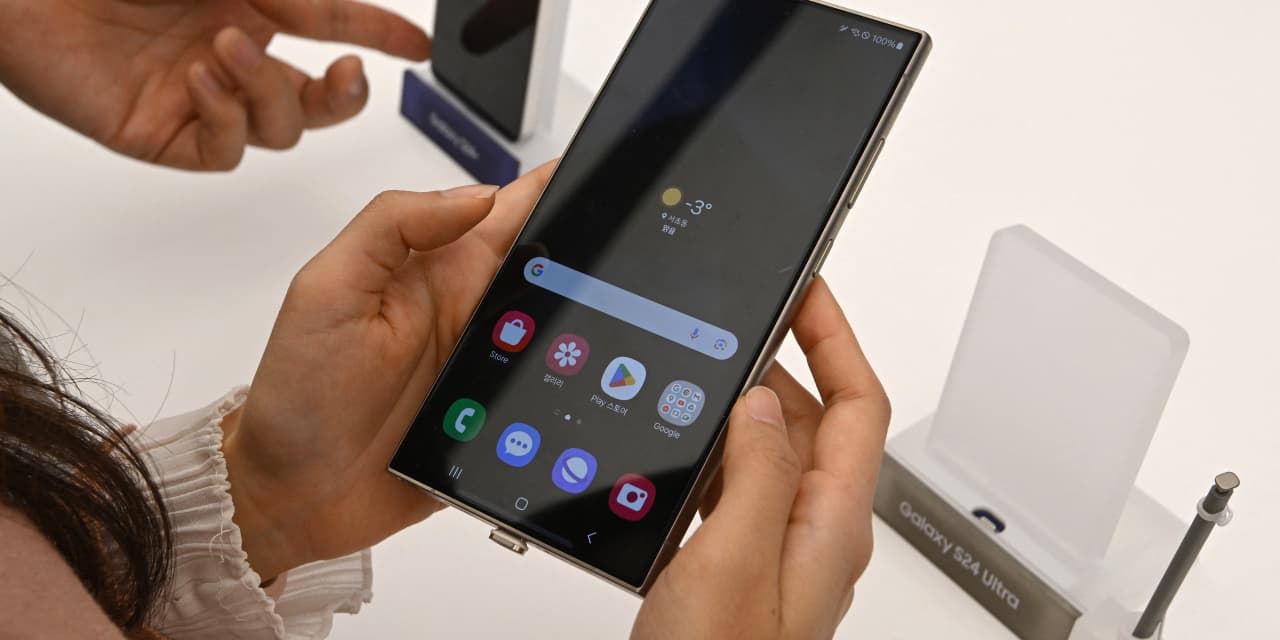Smartphones equipped with artificial intelligence were the main focus at Mobile World Congress when the world’s largest mobile and communications trade show rolled into Barcelona last week.
Here were the key takeaways from the event and what it means for
Apple
and other major technology companies:
Pricey AI Phones
Most smartphones already have access to AI via applications such as ChatGPT or
Google’s
Gemini, but your next phone—assuming you buy something relatively new—is going to have the technology built right into the system.
Flagship smartphones on show from
Samsung Electronics
and Chinese manufacturer Honor—already on the market—were powered by chips from
Qualcomm
and
Micron Technology,
enabling on-device AI, as opposed to sending information to a server to be processed. That should remove obstacles over privacy and data consumption for widespread adoption.
It’s not only going to be for high-end phones either. Qualcomm and its Taiwanese rival
MediaTek
have both released midrange processors with built-in AI capabilities.
However, on balance, it is likely that AI is going to mean pricier phones as manufacturers look to extract the maximum benefit from a new upgrade cycle after a slow couple of years for the smartphone sector.
No Killer AI Feature Yet
Of all the smartphones on show at MWC, Samsung’s Galaxy S24 Ultra was the richest in AI features—offering ‘Circle to Search’, real-time translation and AI-assisted note-taking—but they are all ‘nice to have’ rather than ‘must-have’ tools.
The Google-powered ‘Circle to Search’ function for images could be useful shopping and travel ideas but might be hard to fine tune. For example, circling dishes in a photo of a kitchen produced both offers to buy similar dishware and food recipes.
Real-time translation will be great for frequent travelers but may be of limited use otherwise. AI-assisted note taking similarly appears to be a relatively niche use case for the majority of users who don’t primarily use their phone for business. The single most impressive application was Samsung’s AI-assisted night photography feature, which should win over stargazers at least but might not be enough to get the masses onside.
“This year is really about the hardware,” Christopher Moore, vice president of marketing for Micron’s mobile business, told Barron’s in an interview at MWC. “It’s going to take a year or two for this stuff to really take off.”
That also means that there’s no need to panic for Apple just yet. It has time to perfect its own AI approach before the release of the next iPhone.
Abundant Accessories
When AI becomes more widespread, the need to constantly be pulling out your phone and tapping at its screen should be reduced. That’s where accessories such as smartwatches, smart rings and smart glasses come in.
Among the hardware getting the most attention at MWC was San Francisco-based startup Humane’s wearable device, the Ai Pin, which incorporates a ChatGPT assistant. It was shown answering questions, taking photos and sending texts, with control available both by voice and a laser display which can project onto your palm and be manipulated by hand gestures.
Meanwhile, Samsung also gave a limited preview of its Galaxy Ring, which the Korean company hopes will provide comfortable 24-7 health tracking information, which can then be interpreted by its Galaxy AI housed on the smartphone.
Those accessories aren’t going to replace your smartphone. Even a representative of Humane –one of the few major accessories not linked to one of the phone manufacturers– told Barron’s that the idea was to make something that would augment your smartphone rather than displace it entirely. But it means each manufacturer, including Apple, is going to have to think about how an AI-enabled smartphone can work with a wider range of devices.
Write to Adam Clark at [email protected]
Read the full article here




